I didn’t talk much about Solange Knowles’ album, A Seat at the Table, last year because I wasn’t really into it? I feel mean for saying that. I listened to some tracks and determined that I wasn’t into it so I just kept my mouth shut. “Cranes in the Sky” is an okay song and the music video is beautiful, so I’ll say this: I think Solange is underrated as a visual artist and as a fashion icon. She has a better eye for aesthetics than her big sister Beyonce. U MAD? Whatever. Anyway, Solange covers the new issue of Interview, and wouldn’t you know? Beyonce conducted the interview. Beyonce barely speaks to the press anymore, but Bey will show up for her little sister in a print interview. Their dynamic is fascinating and I won’t be able to really capture the little nuances of their sisterly bond (and one-upmanship) in these excerpts, so I would just suggest you read the full piece if you’re fascinated by the dynamics of the Knowles sisters. Here are some highlights from Solange:
Writing her music, doing everything by herself: “I think it’s been an interesting thing to navigate, especially watching you do the same in all aspects of your work: Society labels that a control freak, an obsessive woman, or someone who has an inability to trust her team or to empower other people to do the work, which is completely untrue. There’s no way to succeed without having a team and all of the moving parts that help bring it into life. But I do have—and I’m unafraid to say it—a very distinctive, clear vision of how I want to present myself and my body and my voice and my perspective. And who better to really tell that story than yourself?
Producing her album, being involved at every level: “One of my biggest inspirations in terms of female producers is Missy. I remember seeing her when you guys worked together and being enamored with the idea that I could use myself as more than a voice and the words.
Singing falsetto, speaking in a controlled, calm voice on her album: “It was very intentional that I sang as a woman who was very in control, a woman who could have this conversation without yelling and screaming, because I still often feel that when black women try to have these conversations, we are not portrayed as in control, emotionally intact women, capable of having the hard conversations without losing that control.
Growing up in Texas, being a womanist: “People were warm. People were friendly. But the biggest thing that I took from it is the storytelling. I feel like, in the South in general, but specifically in our world growing up, people were expressive and vivid storytellers. In the hair salon or in the line at the grocery store; there was never a dull moment. I feel so happy that I got to grow up in a place where you could be the pastor’s wife, you could be a lawyer, you could be a stripper on the side, you could be a schoolteacher—we saw every kind of woman connect on one common experience, which was that everyone wanted to be great and everyone wanted to do better. And we really became womanist because of that. And that’s the thing that I carry with me the most, being able to go out into the world and connect with women of all kinds. I was just having a conversation with someone about The Real Housewives of Atlanta, and I was saying how I love that show and think it’s so brilliant because it’s the woman that was represented in my childhood in Houston. It makes me feel so at home.
Misconceptions about strong-womanhood: “Oh my God, they’re endless! One thing that I constantly have to fight against is not feeling arrogant when I say I wrote every lyric on this album. I still have not been able to say that. That’s the first time I’ve actually ever said it, because of the challenges that we go through when we celebrate our work and our achievements. I remember Björk saying that she felt like, no matter what stage in her career, if a man is credited on something that she’s done, he’s going to get the credit for it. And, unfortunately, that still rings true. It’s something I’ve learned so much about from you, getting to be in control of your own narrative. And, at this point, it should be an expectation, not something that you’re asking permission for. I feel like I’m getting closer to that, not taking on all the baggage when I have to just stand up for myself and say, “No, I’m uncomfortable with that.” And I really appreciate you and mom being examples of that, being able to speak about our achievements, these things that deserve to be celebrated, without feeling bashful about it.
Throughout the interview, you can feel that Beyonce is super-proud of Solange and very interested in her thoughts on everything. They are obviously very close. I like what Solange has to say about being a “womanist” and her fears of coming across as arrogant or a control freak, both labels often given to Beyonce for the control she’s exercised over her career. That being said, Beyonce screamed and yelled on Lemonade, black-woman-stereotypes be damned. And I think that’s because Beyonce was and is in a different place in her career and life. And after all, what’s wrong with being angry?
Photos courtesy of Interview.

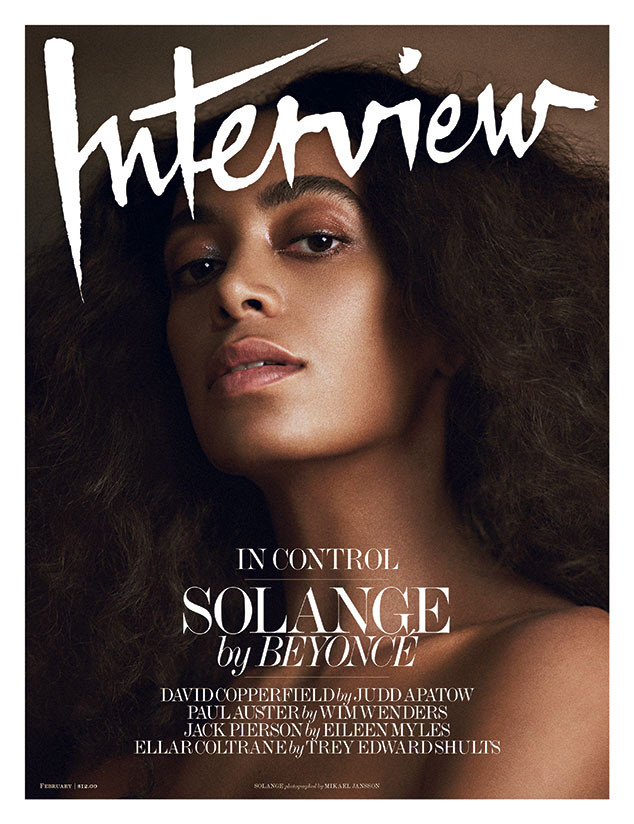
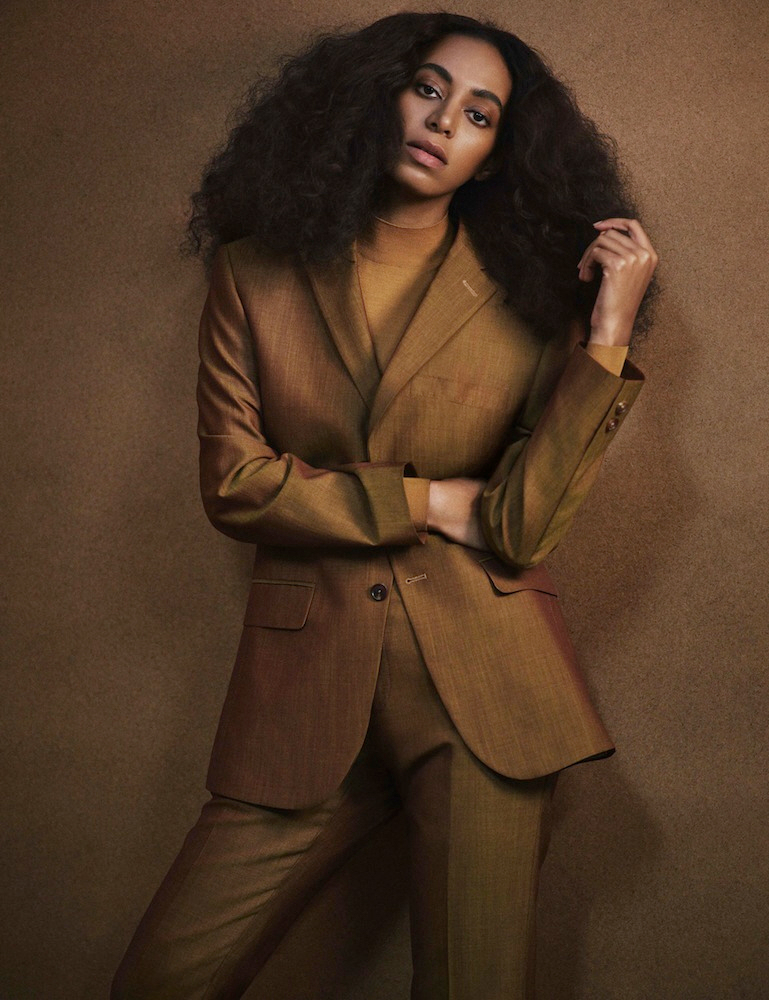
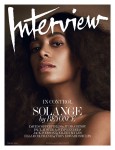


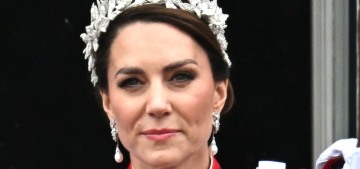
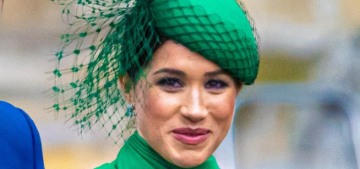
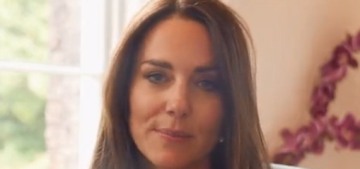

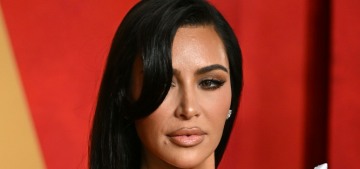




I love RHOA too. There is something a little more tolerable about RHOA and RHNY. Kandi is finally getting the villain editing that she deserves. lol
Back on subject.
Context is key here. She is not saying there is anything wrong with being angry, she is addressing/attacking the stereotype of the angry black woman. There is a very old stereotype that white people/non black people of color and hoteps like to push around that all black women are angry bitter ball busting bitches who always have to dominate every space they are in. And do so in a loud and inarticulate way compared to white woman. To give a poor analogy, it is like how sexist white males and white females like to demonize white feminism. If you label someone as difficult then no one will listen to them. Actually, it is worse because everyone who is not a black woman accepts the “sassy/angry neck rolling black woman as the truth. She is arguing that black woman have different personalities and should be treated as individuals.
Look at how Michelle Obama was treated by the Rethugs for the last 8 years and also by how some people on the left treated her as well, especially that New Yorker article.
Team Phaedra for sure.
I am on team Phaedra and I love that this thread starting with a RHOA comment:)
In all honesty, Solange doesn’t have a strong enough singing voice to bring that sort of dynamic. So I think this was just her way of spinning the fact that vocally she is limited. It’s an old artists trick, you take what could be considered the “weak” or criticized part of piece and explain that it was “intentionally” because if a, b and c…
I love that she spun that like that and chuckled a little bit thinking to myself, “Girl if you had that vocal depth, you would have hollered a wee bit.. stop lying”
Ha.
Every time I have to go look up “hotep.” The word just doesn’t stick!
There is nothing wrong with being angry, when they give you the lee-way of knowing That isn’t your ENTIRE personhood, This happens to not be a courtesy often extended to black women, specifically not THAT^^ Black Girl, so I see why that needed to be worked/debunked/spoken out at Length, cause on top of saying Hey Im Not angry Black gurls have to prove they are still fun/lovable/chill… ya know multifaceted humans
A seat at the Table was in many many ways better than Lemonade but Is not a competition…. That said I know PERSONALLY of at least 5 people including me that that still play a Seat at the table to a ride to work/on AWFUL police killing us days Just To fortify for the day -so in this way it transcends
Looooong time lurker here lol. Yes! I personally LOVE Solange and A Seat At the Table – I haven’t stopped listening to it since it came out (her other stuff is amazing as well). Just today on my drive to work I was playing “Mad”. There’s something about this album that just “gets” me, makes me feel better, resonates with me.
Exactly. Obviously there’s nothing wrong with being angry but she’s clearly saying that this is not something afforded to black women. The angry black woman stereotype is very real and it’s something we have to fight all the time. Not just talking about the way we’re portrayed in television or movies but in real life and especially in the workplace.
“A seat at the Table was in many many ways better than Lemonade but Is not a competition.”
THIS. Both albums were important, very emotional and culturally significant for different reasons. Many people don’t get just how important A Seat At The Table is (as indicated by the dismissive tone this article was written in) but I expect it. It was a beautiful love letter to black women. Like Solange said, this was for us.
❤❤❤❤❤ yes
Agree with everything you said @Almondjoy, esp “as indicated by the dismissive tone this article was written in.”
It’s interesting how easily “mainstream” writers/media folks dismiss the cultural contributions of Black women who aren’t Beyonce. “A Seat At The Table” came along at a moment when I needed to hear a Black woman singing about my experience, my fears, my frustrations, and the weight of feeling unable to be myself in the world and experience the full range of human emotions freely and openly, lest I reap the personal and professional consequences of rebelling against white supremacy.
And Lord, did it help me get through the debilitating, post-election depression.
What on earth is a “womanist”??? Is that what we say when we are afraid of the word Feminist?
I believe its because feminist is so consumed by white privileged women without a clue that the rest of us just cant find ourselves in it.
Exactly. We have to start recognizing that feminism has not been very inclusive when it comes to women of color.
Feminism is the advocacy of women’s rights on the basis of the equality of the sexes. If some (white) women or men try to make it into something else that does not change the meaning of feminism. It remains as an attempt to twist something into what it is not, and should be called out as such.
In my country feminism is inextricably tied to racism. The first feminists used fear of ‘coloured’ men having influence to get the vote, and they fought for segregation. Today white feminists from my country still hold up many of those racists as feminist heroes.
Feminism by and large still isn’t very inclusive. Most forms only account for the issues of white middle class Western women, and disregard that women from different cultures and backgrounds may not have the same issues, or may even have the opposite issues.
I would hope that women could come together under the same banner of women’s rights and not need to have separate words for different ethnicities. Aren’t we meant to be trying to come together? Needing to parse out terminology is divisive.
But, if women of color are telling you that they don’t feel included in the feminist movement, than that means the movement is doing some wrong. Their feelings should not be dismissed. Yes, feminism is fighting for equality of the sexes. But it’s aiming mostly at white women. I think it’s important to acknowledge that and fix it.
Well said, Jenns.
Great comments everyone I didn’t know the origins of the word womanist. Thanks for teaching me! I am off to read a more about it!
@Jenns. Of course it is! And that’s part of what I meant as well, i might not have put it right. But the answer should be, as you say, to find a way to make everyone feel included. Dividing it into different terms for different groups of women feels very wrong to me. I feel like it dilutes feminism in a way, and creates an opening for small minded individuals, like ignorant and privileged white woman to mold it into something that only suits their needs. We have to demand a “seat at the table” for woc in feminism, and not create another table altogether.
When a seat at the table is demanded and refused, marginalized, and ignored time and time again, a new course of action is called for to wake people up to the issue. If me denying the title feminist and adopting the title womanist is what it takes to force this conversation, then I’m a womanist and let’s talk. Hence, womanism.
I came in here to ask this exact question lol. I feel like every week there is a new term to learn and I feel like I’m out of touch!
The term is not new. It has been around since the 1970s. Check out Alice Walker, Audre Lorde and other prominent black womanists.
African Sun, thank you for saying this. I was just about to come on here and say that just because some white people haven’t heard of the term doesn’t mean it’s new. I know that it’s at least been around since the 1970s and maybe longer. I say longer because I think at the time, black feminists took inspiration in old black women using the term “womanish” to describe certain behaviors, so the term’s roots are even older than the 1970s. Yes, go read old Walker, Lorde, bell hooks, Michelle Wallace, Angela Davis, etc. Intersectional feminists should already be familiar with this term, no matter their race.
@WTW Gosh forgot about bell, the icon that she is. Womanism was important but I think one reason why it struggled to gain mass was that it came across as too intellectual at that time but it was extremely important.
@WTW Also I can’t keep my mouth shut if I see black women, Africa or the Knowles sisters in any sentence. LOL.
@ African Sun- I <3 you! Thank you for all of this!
Womanism was in response to the early waves of feminism when black womanists wanted a movement that really got into how they felt as women of colour.
It’s important for women of other minorities to embrace their feelings about being a woman without having to feel like they have to say feminist.
Thank @africansun
Very informative!
@Sandra no problem!
No that’s humanist. Womanist is a term coined by WOC when the feminist movement left them behind. We are seeing the shades of the same thing today. Just look at Pantsuit nation and Women’s March on a Washington that are being dominated by white women that don’t give a flying F about WOC. Or acknowledge that the suffrage movement was racist af. I know many WOC that use womanist instead of feminist. I use both terms but they have different contexts in history.
If you really delve into the history of the suffragette movement, you’d know that they were one of the early opponents of the slave trade, poor female workers fought very hard for female rights and working conditions and there were non white women involved in it. Women like Princess Anita Singh. http://www.standard.co.uk/lifestyle/books/an-indian-princess-who-became-a-suffragette-in-furs-9965818.html
https://en.m.wikipedia.org/wiki/London_matchgirls_strike_of_1888
The fact that the media doesn’t write about them and concentrates on the efforts of a small group of middle class white women like Emmeline Pankhurst is a problem because it propagates the idea that feminism was only for middle-class white women.
Further, unless you study women’s history specifically, the media persists in telling the history of men whilst devaluing or ignoring the history of women. As they say, history is written by the victors and for a long time men were the victors no matter their race, but if you read the history of women, there are many, many women of all races who were triumphant and helpful to fellow women of other races.
Why do you say that about the March? Just curious, thanks
Thanks for the background, African Sun, Nicole and LAK. It’s important for feminists to know the history, and to try to change what’s been wrong with the movement going forward. It’s hard to be inclusive without acknowledging the alienation WOC have felt with feminism to date.
LAK, Yes, but history also tells us that black women like Sojourner Truth felt that neither black men nor white women were invested in their interests. That has been the case throughout history, which is why if Hillary had won, I would’ve been relieved but certainly under no illusion that a white woman winning the presidency meant progress for all women. The racism of white women has long affected the experiences of women of color in and outside of the feminist movement and continues to do so today. No one likes to talk about the racism of white women, but it’s affected my life, my mother’s life and so many other black women I know. Honestly, white men have probably been kinder to me than the average white woman, and that’s saying a lot.
@WTW you are dropping jewels here. I don’t think the suffrage movement provided any relevance to women of colour in the US or the UK at that time. That does not take away from the fact it was helpful for women in the west.
I see more strength from black women who managed to rise above and fiercely fight to get ahead at that time like Madam CJ Walker and they weren’t attached to feminism to do that.
WTW: i don’t bring up my examples to diminish the feelings of black women.
I bring up those examples to point out that feminism is not for white women only and has women from other races working with those early movements even if their history isn’t told.
The point i wish to make is that feminism didn’t just happen in the west. It’s in Africa and in Asia. Has been for centuries. Until i started posting on American boards, it had never occurred to me to create a division between white women and other races because the feminists i grew up with were black, Asian AND white. In Africa, in Asia and in Europe. Women who have done great things and told us of others who did great things for feminism. Perhaps that’s why i don’t understand and will never understand this American divide.
I can understand the argument regarding class because often the richer women had the leisure and resources to explore ideas whereas poor women were trapped in service to society and couldn’t afford these things. However, using the example i gave above, poor women did become involved in the movement and were actually very strong activists in the area of working conditions and pay whilst the richer women were pontificating about votes and rights of women in marriage.
The overall point being that the movement had support across the board, colour and class and it diminishes us all when we devalue it just because some peolle are disagreeable.
I always use religion as a close analogy of my fundamental point which is that if a society believes in a god, then you all have the same belief whether some people are more extreme and ergregious in that belief whilst others are more laissez faire about it. Where you sit on the pendulum doesn’t matter because you all believe the same thing.
Womanist is feminism that includes voices and awareness of experiences of POC women. Alice Walker coined the term.
LatinX women have also coined a term- Mujerista.
It doesn’t mean that “Feminism” is being rejected. These are pathways that allow WOC to speak on Feminism as it specifically impacts them and their lived experiences. In fact- it expands the number of conversations that are happening and introduces many valuable perspectives that Feminism has continued to have blind spots around.
So sweet how their love for each other comes through in that interview. Thank God for sisters.
That’s what I love about this! Adorable!
Solange sounded incredible on ‘Don’t touch my hair’ – the chorus is everything.
I love how B is supporting her sister. Rumour has it Beyonce is the reason as to why Solange inked a deal with Columbia Records, she was struggling before but looks like her big sister stepped in and what incredible results this new deal has done for Solo. Grammy nomination, more promotion, a #1 album.
So happy for Solange. She deserves it.
In the interview it’s stated Solange runs her own record label from New Orleans. She’s amazing.
On a superficial note: I would do anything to have half the style that Solange has.
On another: Cranes in the Sky, and the whole album, really is beautiful, just gorgeous music and singing. I don’t get the hype for Beyonce (I know I know I am one of those cynicals who thinks she’ll hop on any train that will take you to the cool place of the moment) but have a real admiration for Solange.
Loved everything Solange had to say here. And it is heartwarming to see the bond between sisters. I’m not as big a fan of Seat At the Table as Lemonade but I feel like both women have grown so much and that’s reflected in their work/art.
I think anger is often appropriate. When a situation warrants anger and that anger is absent…I find that disturbing. Finding out your partner cheated on/lied to you? Anger is appropriate.
@Greenie “Anger is a gift.” – Rage Against the Machine
Beyonce had ONE song on Lemonade where she yelled (rock song). The rest of the songs were measured and lyrical (All Night, Sorry and the rest). They’re different artists stylistically but both very talented.
I loved A Seat at the Table, it’s one of those old fashioned concept albums with grear music and a message. It kind of reminded me
of the Miseducation of Lauryn Hill in this aspect.
Their bond is something special and you can feel that they respect each other as artists too.
Cranes in the sky is an ” ok song”? Are you kidding? It’s one of the most beautiful songs of the last year.
Solange is a huge influence on Beyoncé by the way. Especially on lemonade you can really see her influence. A lot of the indie acts that are on that album have close ties to solange. And the New Orleans influence in the music and imagery.
Fantastic interview! I loved her new album and I really enjoy their sister dynamic. Also, maybe it’s because I grew up and live in a place in which there really isn’t a black community, but ever since I’ve heard about the Angry Black Woman stereotype, I’ve always found it to be absolutely ridiculous. Like, what does it mean? Why is it (and any other stereotypes, honestly) even a thing?
Solange wrote a great song in Cranes in the Sky, but I just couldn’t feel anything in her voice. I tried. Since I’m of the older set, the first artist that came to mind when I heard this song was Erykah Badu. She would have delivered the sh*t out of this song, I think.
But I still appreciate what Solange is doing.
I think solange showcased a delicate softness, and falls within the range of singers with substance… still no less soulful.
There is nothing wrong with being angry at all. The problem is people use the angry black woman stereotype to shut down discussion and ignore what we have to say. Even when we’re not angry if we have less than a grin on our faces people act as though they need to duck and cover. It feels like as a black woman we aren’t allowed to have the same emotions or complexity as other people; just take everything on and be quiet. Many women fall into that trap for a long time to avoid the label and to not be “that black girl”
Vogue cover is coming up. Yayy Solange!!!
That’s great! How many black women got the cover of vogue lately? Michelle Obama and who else?
This woman speaks my truth. I am also a womanist, have been since encountering Bell Hooks, Patricia Hill Collins and Chanda Mohanty. They speak the truth all day, every day and Audre Lorde would be proud. Everyone on this site who wants to know about the ‘Uses of Anger’ should read Lorde’s essays in ‘Sister Outsider’.
I am struck by how well Solange expresses herself. I enjoyed reading the excerpts of her interview and I always look forward to her walking a red carpet or on the street. I may not always like what she is wearing but she’s never boring!
i am here for all things Solange…. and it’s unfortunate that you didnt grasp the full magnitude of the album. But tbh the album really spoke to WOC particularly black women and the black experience, in some track nuanced, in other BLATANT. It’s a little (lotta lol) more conscious than you taylor swift, and katy perry fare.
to my comrades of other colors… Womanism is the quest for equality, representation, yet celebration of black womanhood…. notable early feminist were often times supremely racist and excluded black women in the suffrage movement (dont argue, we have receipts)…. I am a womanist for sure. It’s not a new term and has been out for decades, you gotta step outside your bubble and learn other things besides what’s forced down your throat.
that being said…. I know Lemonade was among other things heralded as a cd celebrating black womanhood but I strongly disagree, as it was more a women gaining her voice after being humiliated and scorned…. Solange’s cd deserved that title, as it celebrated black womanhood, addressed racial inequities, etc. going on in our community. It was everything.
notable womanist:
-Erykah Badu
– Nina Simone
– Billy Holiday
– Tina Turner
– India Arie
– Angie Stone
Dead at don’t argue, we have receipts LMAO. I know that’s right LOL.
yes!
I am so jealous of her style – even when it’s off it’s on.
I love her aesthetic! (She is underrated) And this was a really good interview.
Love her record. Don’t sleep on it people. Up there with frank oceans blonde for me.
Did anyone else see Blackish last night??
Love her!